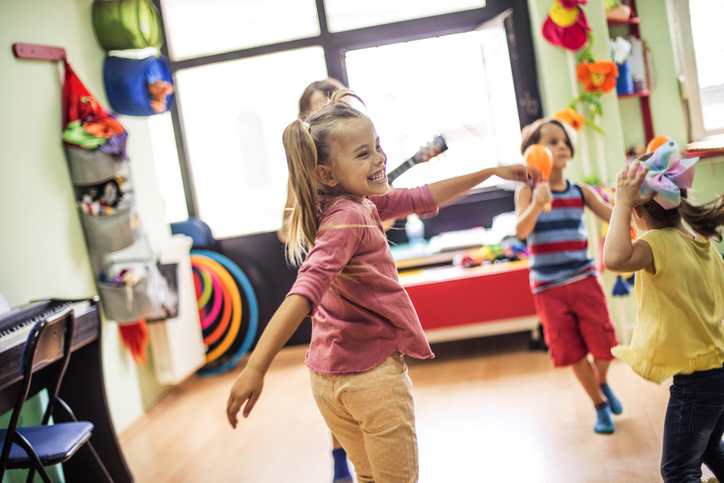
How Music and Movement Enhance Learning in the Early Years
Music and movement play a powerful role in early childhood education, combining physical activity with cognitive development to create a holistic learning experience. Through these activities, children enhance their social, emotional, and academic skills.
Supporting Cognitive Development
Music engages multiple areas of the brain, helping children recognise patterns, improve memory, and develop language skills. For example, songs that include repetition or rhyme help children remember words and phrases, which supports language acquisition.
Additionally, music that involves counting or sequencing, such as “Five Little Ducks,” introduces early mathematical concepts in a fun and engaging way. Children learn to recognise numbers, sequences, and patterns through the rhythm and repetition of songs.
Enhancing Physical Development
Movement activities like dancing, clapping, or jumping along to music help children develop gross motor skills. These activities improve coordination, balance, and spatial awareness, all of which are essential for physical development.
Children who engage in regular movement activities are also more likely to stay active and healthy as they grow. Physical play helps them build strength and endurance, while music keeps them engaged and motivated.
Boosting Emotional and Social Skills
Music and movement offer children a way to express their emotions. A fast, upbeat song can energise them, while a slower melody might calm them down. This connection between music and emotions helps children regulate their feelings, making music a valuable tool for emotional development.
In group settings, music and movement activities promote social interaction. Children learn to cooperate, take turns, and work as a team, whether they are clapping along to a beat or participating in a dance routine. These interactions build important social skills, helping children learn to communicate and collaborate effectively with their peers.
Encouraging Creativity and Imagination
Music and movement activities often involve improvisation and self-expression. Children might invent their own dance moves or create a song with made-up lyrics, allowing them to explore their creativity in a playful and supportive environment. This encourages them to think creatively, a skill that will benefit them in all areas of life.
Conclusion
Music and movement are invaluable tools in early childhood education, enhancing cognitive, physical, emotional, and social development. By incorporating these activities into a child’s daily routine, parents and educators can foster a love for learning that supports the whole child.
